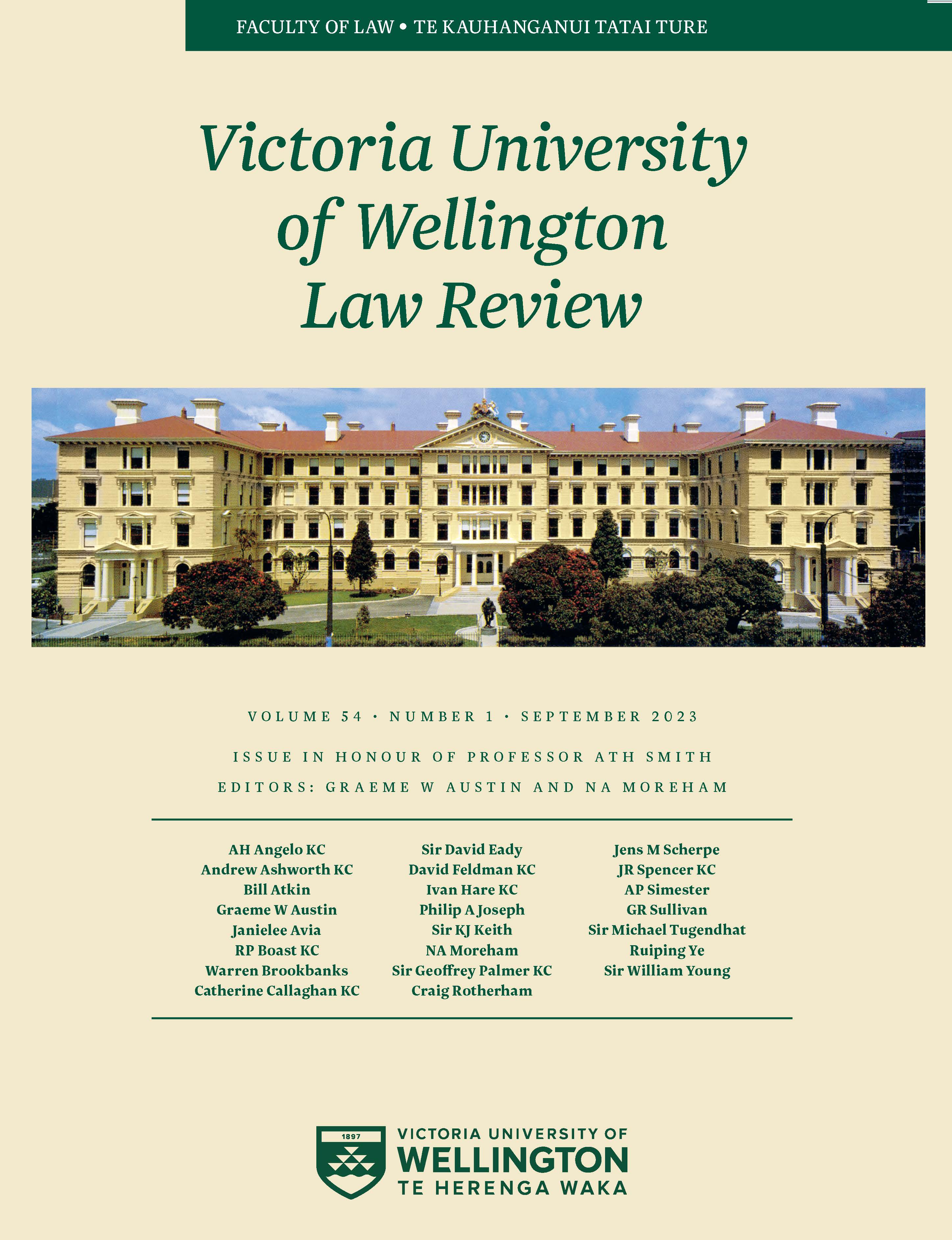Consent in Modern Criminal Law
DOI:
https://doi.org/10.26686/vuwlr.v54i1.8450Abstract
This article considers the law, of New Zealand and England and Wales, relating to determinations whether P consented in various kinds of interaction with D. (The interactions considered are between persons old enough to validly consent to the conduct at issue and who are capable of evaluating and reflecting upon the consequences of their actions.) In the context of sexual interactions, the law in both jurisdictions is in a process of fitful change—from a regime in which consent could be vitiated only by threatened or actual force, impersonation, or radical misunderstanding, towards a position where the question of consent is less categorical and at large. A contrast is drawn between sexual and other interactions, including offences against the person and, especially, commercial misconduct. In the former cases, the central concern is justice between the parties. By contrast, in delineating the boundaries of what amounts to lawful commerce, it is permissible to consider what a ruling about consent may entail for the commercial system as a whole: something that can lead to a very thin conception of what makes for valid consent. The most general lesson that goes with this argument is that consent in law is not a pre-legal phenomenon.
Downloads
Downloads
Published
How to Cite
Issue
Section
License
Authors retain copyright in their work published in the Victoria University of Wellington Law Review.


